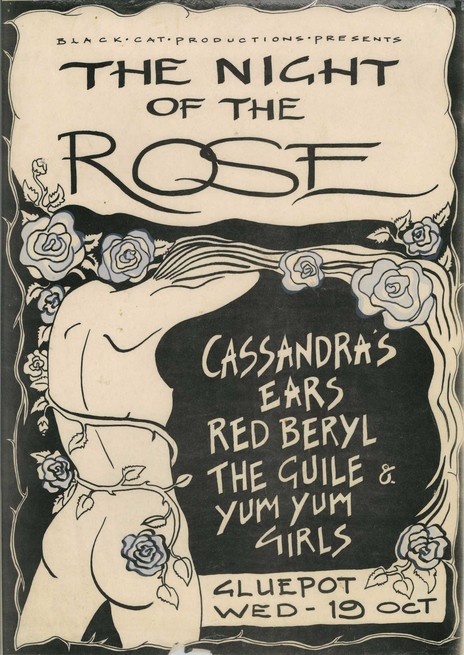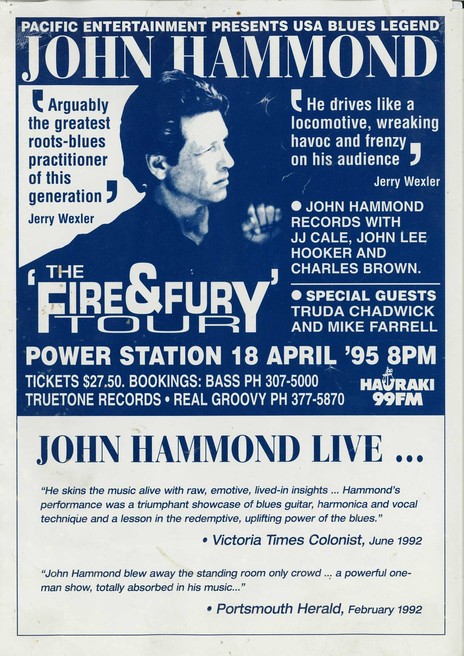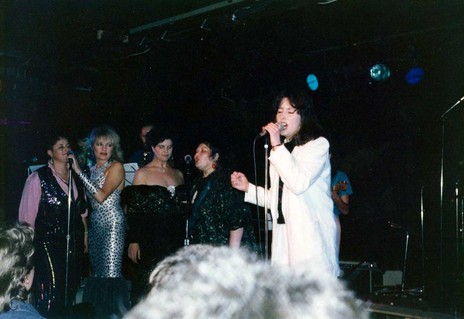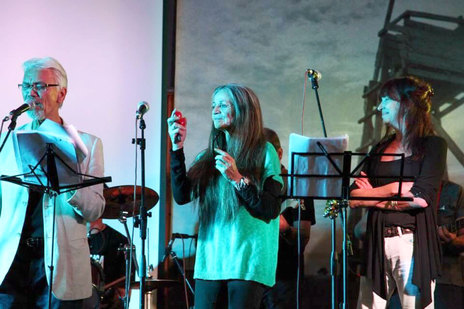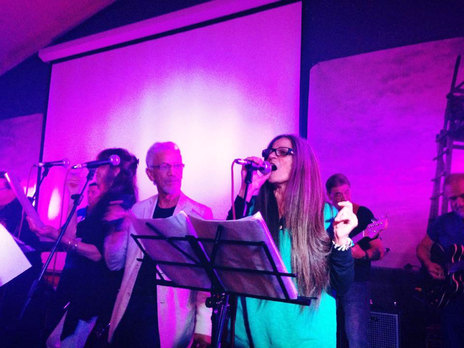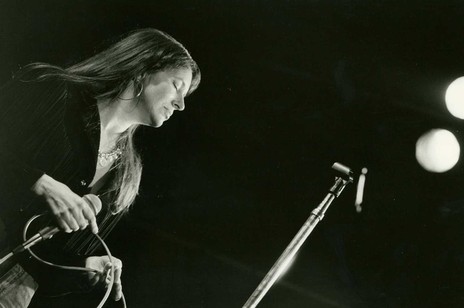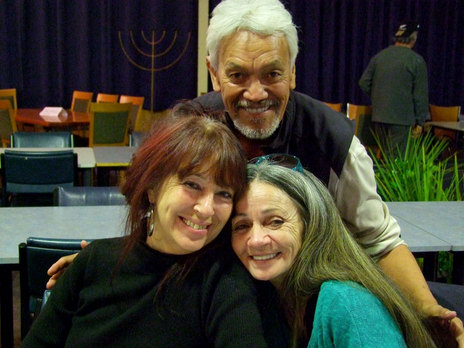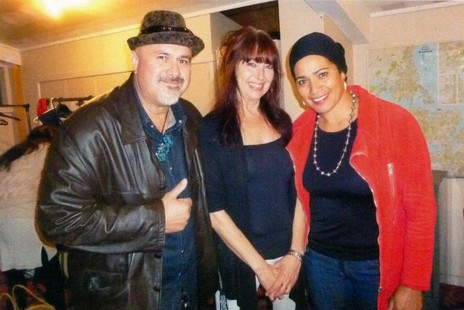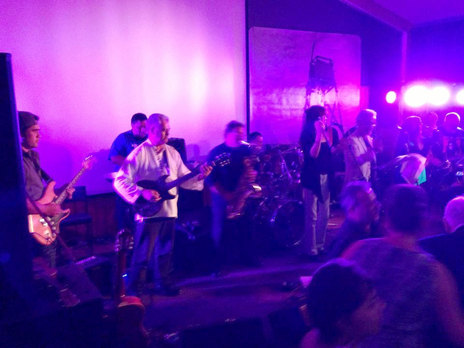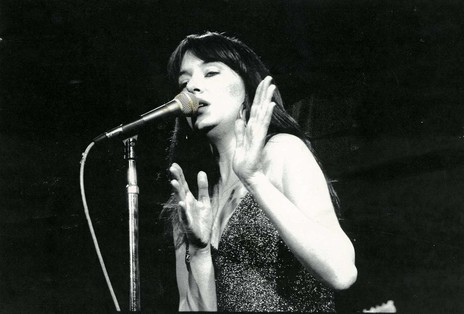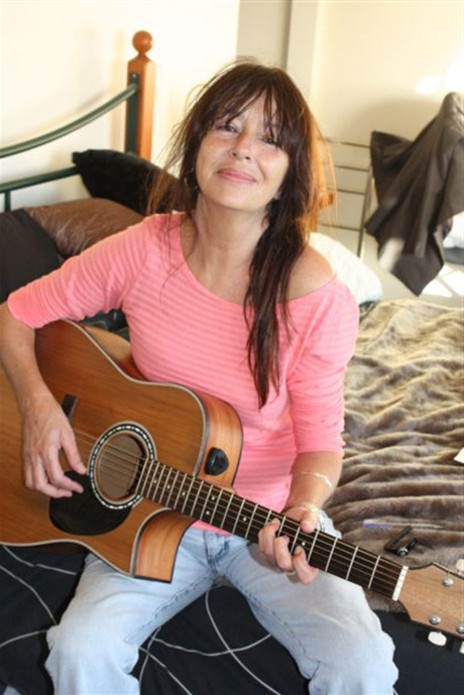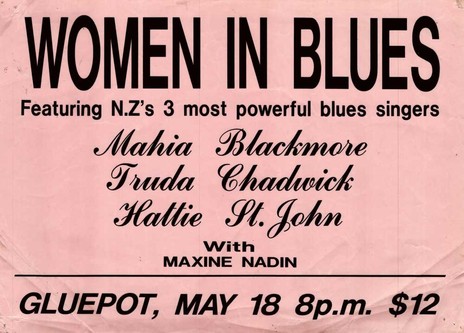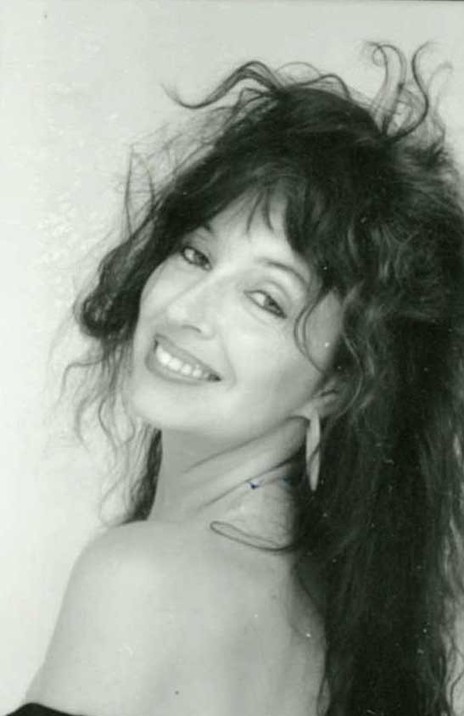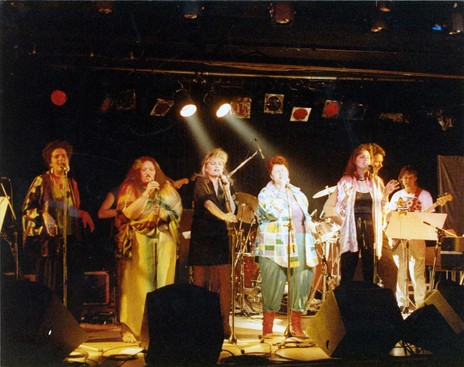Ambition and marriage is an uneasy alliance and Truda found herself increasingly drawn to the performing arts. A brief association with Dave Calder led to vocal contributions to the Sleeping Dogs soundtrack and at the 1978 Nambassa Music Festival she joined Mahana on stage (playing flute), and later toured with the musical-theatrical troupe.
Truda spent 18 months, on and off, with Mahana and it brought her into contact with some of the people who would later feature in her career, including Mahia Blackmore, Billy TK and Johnny Tucker. In 1982, now single with son Dylan Keating in tow (himself now established in the NZ music industry) she shifted to Gisborne, where she fell in with musician Maurice Priestley, owner of Capture Recording Studio.
“I didn’t have a great deal of confidence,” she says, “but Maurice encouraged me.” One of her compositions won a national songwriting competition and she came to the attention of several key musicians passing through town, notably Murray McNabb, who suggested she shift back to Auckland.
Since 1985, Truda Chadwick has been Auckland-based and it is Auckland where her name is best-known. She sang around Auckland in a series of low-key gigs, accompanied by a string of established pianists – McNabb, Geoff Castle, Val Lamont, Mike Walker and Peter Woods – and she was spotted by Ray Columbus, who mentored her over the years. “Those pianists played a huge role in my development,” she says. Other influential figures in her career included guitarist Mike Farrell and Ritchie Pickett; Steve Garden of Progressive Studios utilised her for backing vocals.
Chadwick became a regular feature at the Performance Café in Symonds Street.
As an occasional member of Farrell’s Farrelli Brothers (and other bands), Chadwick became a regular feature at the Performance Café in Symonds Street, which is where she teamed up with a group of similarly-styled singers to form Ladies Sing The Blues, the hugely successful collective of the late-1980s/ early-1990s which included Mahia Blackmore, Hattie St John, Maria Monet and Katy Soljak. The group’s occasional appearances included sell-out performances at the Six Month Club, The Powerstation and The Gluepot. In 1990 Ladies Sing The Blues toured the North Island with great success.
In between Ladies Sing The Blues performances, Chadwick continued working low-key gigs around Auckland, at Delmonico’s, the Melba and London Bar, including regular appearances with a trio comprising Murray McNabb (piano), Andy Brown (double bass) and Frank Gibson Jr (drums), a heavyweight line-up.
She formed her longest-lasting band in 1991, Truda & The Blue Bloods (later Truda & The Sugar Babies), as an alternative to the jazz units she sang with. Strapping on an electric guitar, Truda and band were regulars at the Gluepot Corner Bar and the City Hotel, playing a mixture of rock, country and blues, covering Jimi Hendrix, the Pretenders and Rodney Crowell. Musicians to pass through the ranks include Mike Farrell, Paul Jameson and Martin Winch.
There were other gigs and achievements outside the Sugar Babies – support slots to Clarence Gatemouth Brown, John Hammond (with Farrell) and Roy Buchanan (with Brendan Power and Lynne Campbell), guest performances with Alan Brown’s Blue Train, appearances at Tommy Adderley’s Jazz & Blues Festival and the Trans-Tasman Country Music Festival on Norfolk Island; in 1994 Truda collected the Contemporary Country Music Association’s inaugural Golden Microphone Award.
Meanwhile, there were those occasional women’s music collectives – Meg & The Fones, The Night Of The Rose, Women In Blues (a stripped back version of Ladies Sing … ) and an evening of women singer-songwriters. These mostly one-off shows saw Truda teamed with an eclectic group of female performers, including Marion Arts, Jan Hellriegel and Dianne Swann; the Yum Yum Girls was an a capella group featuring Truda, Pauline Berry and Ingrid Juffer.
Auckland has seen less of Truda Chadwick in the 2000s – a residency at The Alhambra with Kip Tipuna was her most regular gig – but she still surfaces on occasion and that velvet voice lends itself well to television voiceovers, a secondary occupation. A 2010 visit to England saw her tour around Britain and Europe with Georgie Fame, whom she impressed and befriended during his frequent New Zealand visits. She says, “the one thing I have learned travelling and sitting in with different musos is that it doesn’t matter what nationality you are if you’re a great musician. We have fabulous musicians here in New Zealand, the equal of anywhere. There is an indefinable thing when everyone plays the same notes, the right notes, and the band is totally cooking, it’s the best feeling in the whole world.”
